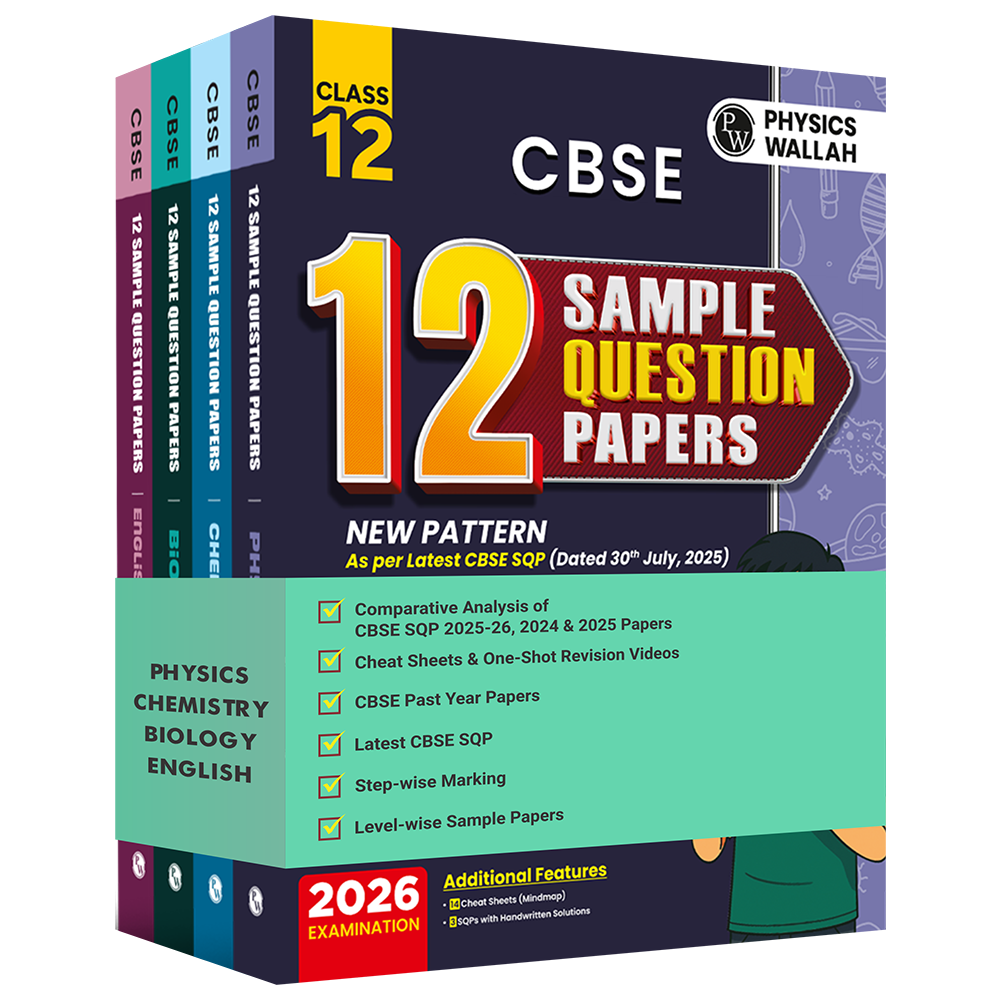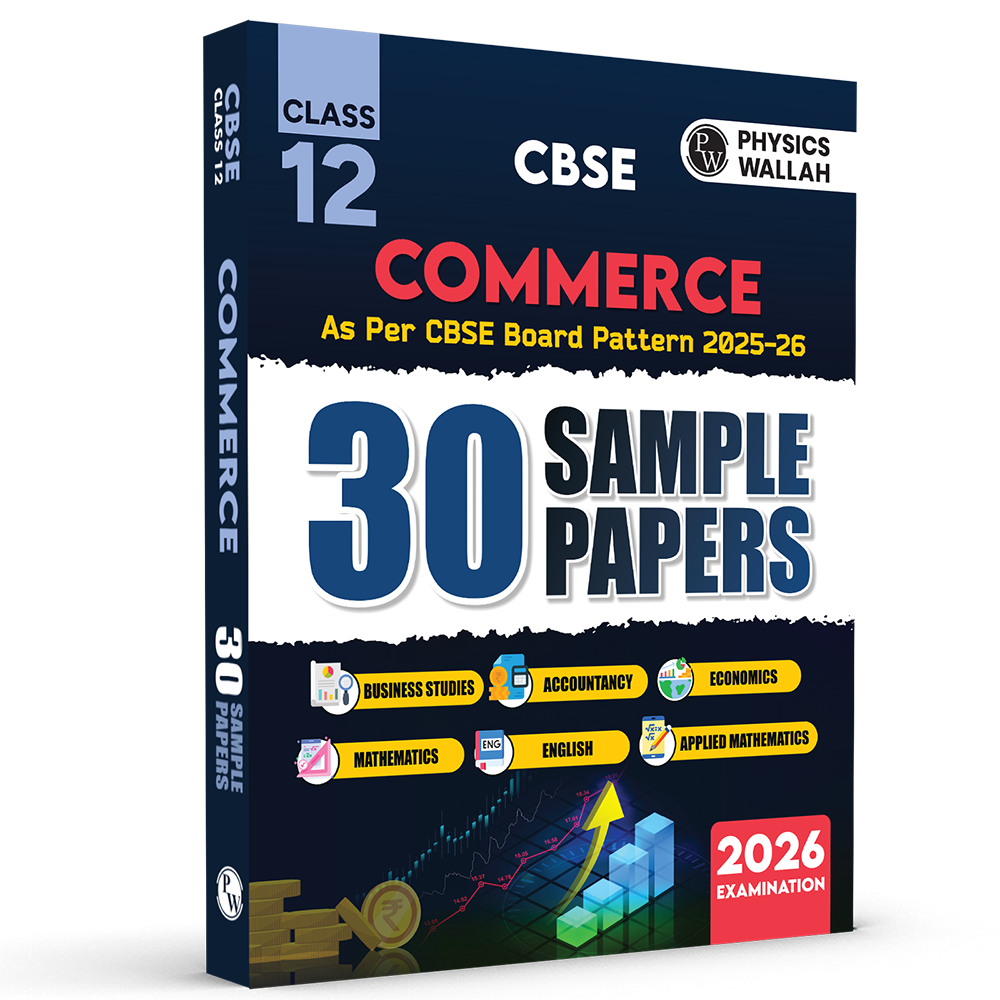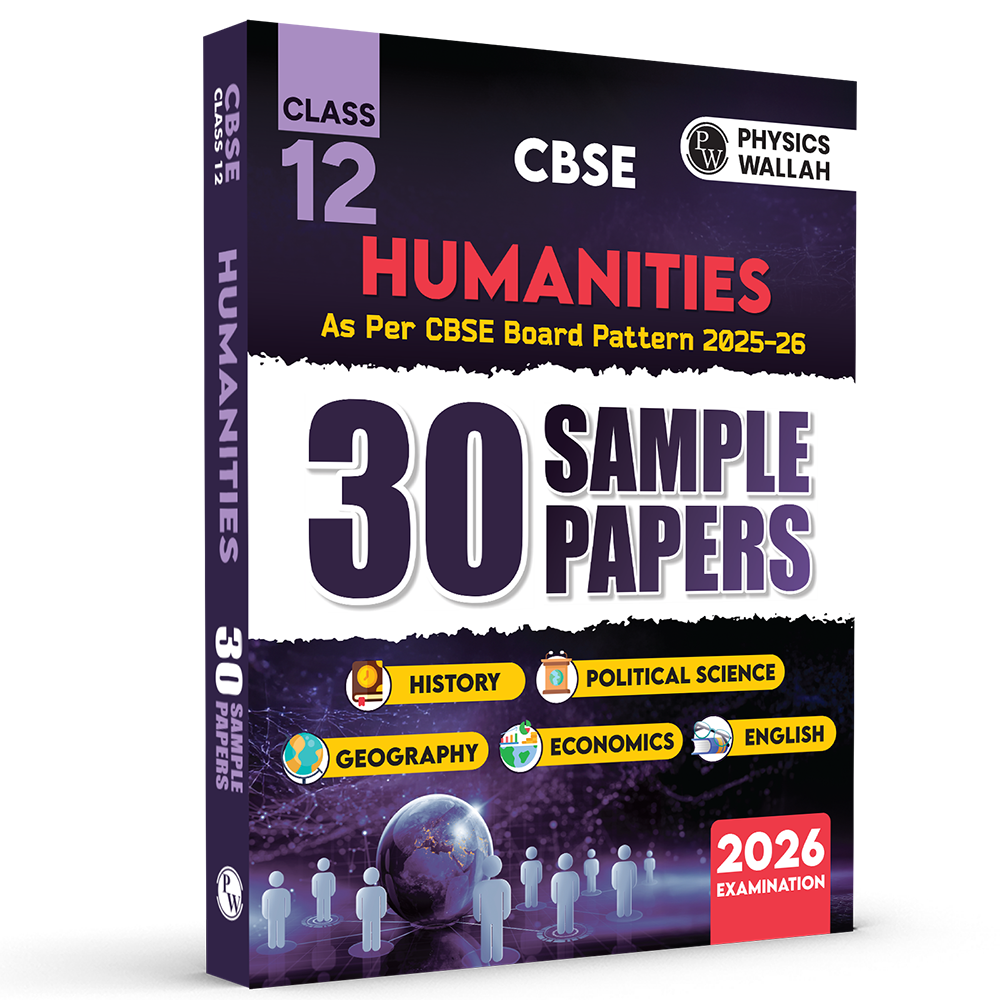CBSE Class 12th Is NCERT Books Enough for Exam Preparation?

Preparing for the CBSE Class 12th exams is a crucial phase for students aiming to secure their academic future. Among the various resources available, NCERT books have been a fundamental component of the CBSE curriculum. However, students and parents often wonder if relying solely on NCERT books is sufficient for scoring well in these pivotal exams. Let's explore the advantages and limitations of NCERT books and determine if they can be the cornerstone of an effective study strategy.
Is NCERT Enough for Boards Class 12?
1. Alignment with the CBSE Curriculum
NCERT books are specifically designed to align with the CBSE curriculum. This ensures that the content is relevant and covers all the essential topics outlined in the syllabus. By sticking to NCERT books, students can be confident that they are studying the prescribed material. This alignment reduces the chances of encountering out-of-syllabus questions during exams.
2. Clarity and Simplicity
NCERT books Class 12th are known for their clear and concise explanations. The language used is simple, making it easier for students to grasp complex concepts. This clarity is particularly beneficial for subjects like Mathematics and Science, where understanding the fundamentals is crucial. The step-by-step approach to problem-solving in Mathematics, for instance, helps students build a solid foundation.
3. Conceptual Understanding
NCERT books focus on building a strong conceptual foundation. Instead of rote learning, these books encourage students to understand the underlying principles. This approach is invaluable for subjects such as Physics, Chemistry, and Biology, where conceptual clarity can significantly impact performance. For example, understanding the laws of motion in Physics through NCERT’s detailed explanations can help students apply these concepts to various problems effectively.
4. Practice Questions
At the end of each chapter, NCERT books provide a variety of questions, including multiple-choice questions, short answer questions, and long answer questions. These exercises help students test their understanding and prepare for the types of questions they might encounter in the exams. Regular practice with these questions can enhance problem-solving skills and time management.
5. Endorsement by Educators
Many teachers and education faculty recommend NCERT books for CBSE exam preparation. They often cite these books as comprehensive and reliable resources that adequately cover the syllabus. Teachers frequently use NCERT books as their primary teaching tool, ensuring that classroom instruction is in sync with the books.
Read More - Class 12 Preparation Tips: Proven and Tested Ways to Score High in CBSE Class 12 Board Exams
Is NCERT Enough for Class 12 Boards?
1. Lack of In-Depth Coverage
While NCERT books cover the syllabus, they sometimes lack the depth required to tackle higher-order thinking questions. For competitive exams like JEE and NEET, students may need to refer to additional resources that provide more detailed explanations and advanced problems. Books like PYQs & Sample Paper for Mathematics offer extensive practice problems and deeper insights into concepts.
2. Limited Practice Questions
Although NCERT books offer practice questions, they may not be sufficient for students who wish to practice extensively. Additional question banks and sample papers can provide a wider variety of problems and help students hone their problem-solving skills. Solving previous years' question papers and sample papers from various sources can expose students to different question patterns and difficulty levels.
3. Insufficient for Certain Subjects
Subjects like English and Economics often require supplementary reading to develop a more comprehensive understanding. Reference books and guides can provide additional insights and practice material that can be beneficial for these subjects. For instance, supplementary books for English can help in improving essay writing skills and understanding literary devices.
4. Competitive Exam Preparation
For students aspiring to crack competitive exams, NCERT books alone might not suffice. These exams often require a deeper understanding of concepts and advanced problem-solving abilities. Supplementing NCERT books with reference materials and coaching can be essential for success. Coaching institutes provide structured programs that cover advanced topics and offer rigorous practice sessions.
From Which Book Board Questions Are Taken Class 12?
1. Predominant Use of NCERT Books
Board questions for CBSE Class 12 are predominantly taken from NCERT books. The questions are often directly lifted or slightly modified from the exercises and examples given in these books. This makes NCERT books an indispensable resource for exam preparation. Familiarity with NCERT content can give students a significant advantage during exams.
2. Supplementary Materials
While NCERT books are the primary source, examiners sometimes incorporate questions inspired by concepts covered in NCERT but presented in different contexts. Therefore, practicing with additional sample papers and question banks can provide a competitive edge. Get access to sample papers and previous years' question papers (PYQs) for effective exam preparation. Practice with teachers designed papers aligned with the syllabus to enhance your understanding and score better.
Read More - CBSE Board Reference Books for Class 12
NCERT Books for CBSE Class 12
1. Core Subjects
NCERT books for core subjects like Mathematics, Physics, Chemistry, and Biology are extensively used. They cover the syllabus comprehensively and are essential for building a strong conceptual foundation. For example, NCERT Chemistry books provide detailed explanations of organic reactions, which are crucial for both board exams and competitive exams like NEET.
2. Languages and Humanities
For subjects like English, History, Geography, and Political Science, NCERT books offer a balanced mix of theoretical knowledge and practical applications. However, supplementary reading can enhance understanding and performance. Reading additional literature, reference books, and practicing writing essays and answers can improve language and humanities scores.
3. Commerce and Economics
In Commerce and Economics, NCERT books provide a solid base. Additional resources like reference books and guidebooks can offer more detailed explanations and practice questions, helping students to achieve higher scores.
Conclusion
NCERT books are undoubtedly a crucial resource for CBSE Class 12th exam preparation. They provide a solid foundation, clear explanations, and practice questions that are aligned with the syllabus. However, to excel and secure marks, students may need to complement NCERT books with additional resources, especially for subjects requiring deeper understanding and for competitive exams.
A balanced approach, combining the strengths of NCERT books with supplementary materials, can ensure comprehensive preparation. Students should identify their strengths and weaknesses and tailor their study strategy accordingly. With the right mix of resources and consistent effort, achieving success in the CBSE Class 12th exams is well within reach.
Is NCERT Books Enough for Class 12 Exam Preparation- FAQs
Q1: How important are NCERT books for CBSE board exam questions?
Ans: Most CBSE board exam questions are directly taken or inspired from NCERT books, making them crucial for exam preparation.
Q2: How do NCERT books help students in understanding complex concepts?
Ans: NCERT books explain concepts in simple language and provide clear, step-by-step explanations, aiding in better understanding.
Q3: Are NCERT books sufficient for preparing for the CBSE Class 12 board exams?
Ans: Yes, NCERT books cover the entire CBSE syllabus and provide clear concepts, making them sufficient for board exams.
Q4: Are NCERT books enough for subjects like English and Economics?
Ans: While NCERT books provide a solid base, supplementary reading can enhance understanding and performance in these subjects.












